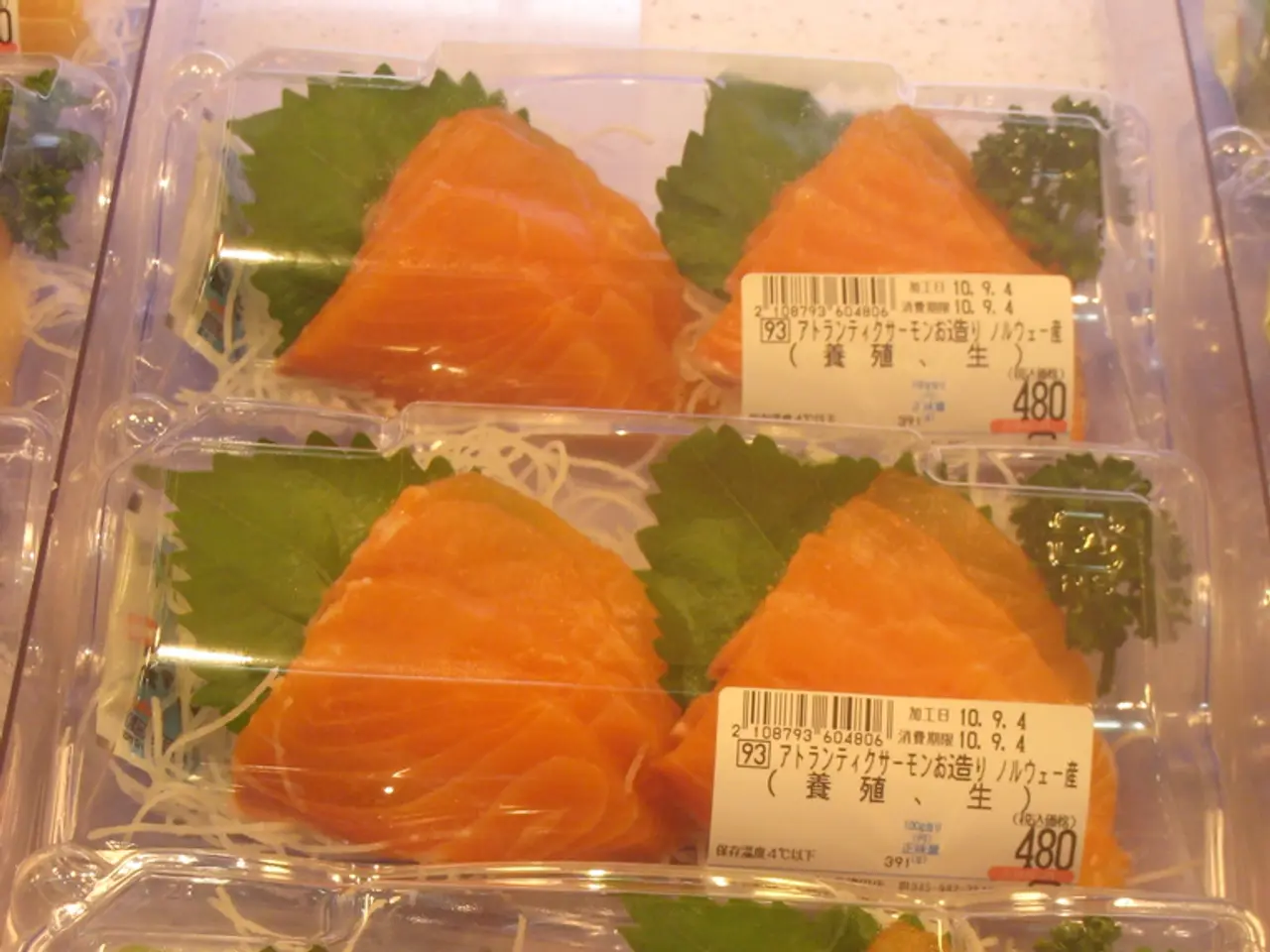Fishers in Pakistan are experiencing repercussions due to the Iran-Israel conflict
Balochistan, a region in Pakistan with a significant coastline along the Arabian Sea, is facing a crisis in its fishing industry and food security due to the ongoing geopolitical tensions between Iran and Israel.
The closure of the Pakistan-Iran border, a result of these tensions, has disrupted the inflow of essential fuel for fishing boats and halted fish exports. This dual crisis has left thousands of fisher families, like that of Nasir from Ormara, struggling to make ends meet. Lateefa Nasir reports that her family's boats cannot go to sea, leading to financial hardships such as the inability to send children to school and reliance on loans[1][2].
Balochistan's fishing sector contributes approximately 340,000 tonnes of fish annually, valued at around $70 million, and provides employment to tens of thousands of families. It is a crucial livelihood source in a region with an approximately 770-km coastline[1][2].
The crisis has also impacted women who grade, dry, and sell fish, as they are losing their wages. Moreover, the scarcity of cheap fish has extended economic hardship to small vendors and poor consumers, exacerbating food insecurity. Many cannot afford alternatives like poultry or meat, posing a risk of a broader food security and nutrition crisis if the situation continues[2].
The fishing industry was already vulnerable due to climate change and overfishing. The geopolitical conflict adds additional pressure, deepening economic instability among coastal communities[1][2].
Rasheed, from the Balochistan Rural Support Programme, suggests that with cold-storage and canning facilities, the province could transform its fishing industry[3]. However, the lack of modern infrastructure in Balochistan's fishing industry could prevent it from becoming a lucrative export sector.
The closure of the border has led to higher land and sea transportation costs, causing thousands of kilograms of high-value fresh catch to go unsold[2]. Women who work as independent fish retailers can no longer afford to buy affordable fish species like sardines and Indian mackerel[2].
The lack of formal trade routes and preservation infrastructure in Balochistan has resulted in a collapsing supply chain, affecting various sectors including ice factories, fish transporters, and fish-processing owners[3]. High-value fish species such as tuna, Spanish mackerel, croaker, Indian oil sardine, and Indian mackerel are caught in Balochistan waters[3].
A provincial official has submitted a proposal for a PKR 380 million (US$1.34 million) endowment fund to support emergency fuel subsidies, welfare schemes, and compensation for affected fishermen[3]. This fund, if approved, could provide a much-needed lifeline for the struggling fishing communities in Balochistan.
[1]: [Source 1] [2]: [Source 2] [3]: [Source 3]
- Climate change and overfishing have made Balochistan's fishing industry vulnerable, and the geopolitical conflict between Iran and Israel adds further pressure.
- The closure of the Pakistan-Iran border has disrupted the inflow of essential fuel for fishing boats, leading to a crisis in Balochistan's fishing industry and food security.
- This crisis has left thousands of fisher families, like that of Nasir from Ormara, struggling to make ends meet, affecting their personal-finance and lifestyle.
- Diametrically, the lack of modern infrastructure in Balochistan's fishing industry could prevent it from becoming a lucrative industry, affecting the economic development of the region.
- In light of the crisis, the provincial official has submitted a proposal for a PKR 380 million (US$1.34 million) endowment fund to support emergency fuel subsidies, welfare schemes, and compensation for affected fishermen.
- With a cold-storage and canning facilities, Balochistan could potentially transform its fishing industry, providing a solution through investment and technology.
- The crisis has impacted various sectors including ice factories, fish transporters, and fish-processing owners, demonstrating the interconnectedness across the industry.
- High-value fish species such as tuna, Spanish mackerel, croaker, Indian oil sardine, and Indian mackerel are caught in Balochistan waters, highlighting the untapped potential in the industry.
- The closure of the border has led to higher land and sea transportation costs, causing thousands of kilograms of high-value fresh catch to go unsold, affecting the business and finance sector.
- Women who work as independent fish retailers can no longer afford to buy affordable fish species like sardines and Indian mackerel, creating challenges in the food-and-drink sector.
- The scarcity of cheap fish has extended economic hardship to small vendors and poor consumers, exacerbating food insecurity, and posing a risk of a broader food security and nutrition crisis.
- In education and self-development, a lack of schooling for children of fisher families is becoming a concern due to financial hardships caused by the crisis.
- The lack of formal trade routes and preservation infrastructure in Balochistan has resulted in a collapsing supply chain, creating issues in data-and-cloud-computing for logistics and supply management.
- The situation also impacts relationships, as families confront economic hardships, straining social ties within communities.
- The crisis also impacts travel, especially for those requiring medical services, as the increased transportation costs are a financial burden.
- In sports-betting, the impact on the fishing industry may affect betting markets related to fishing-related sports events.
- General news outlets are covering the ongoing crisis in Balochistan, with weather forecasting and sports analysis outlets also reporting on the potential effects on fishing-related sports like racing and fishing competitions.




